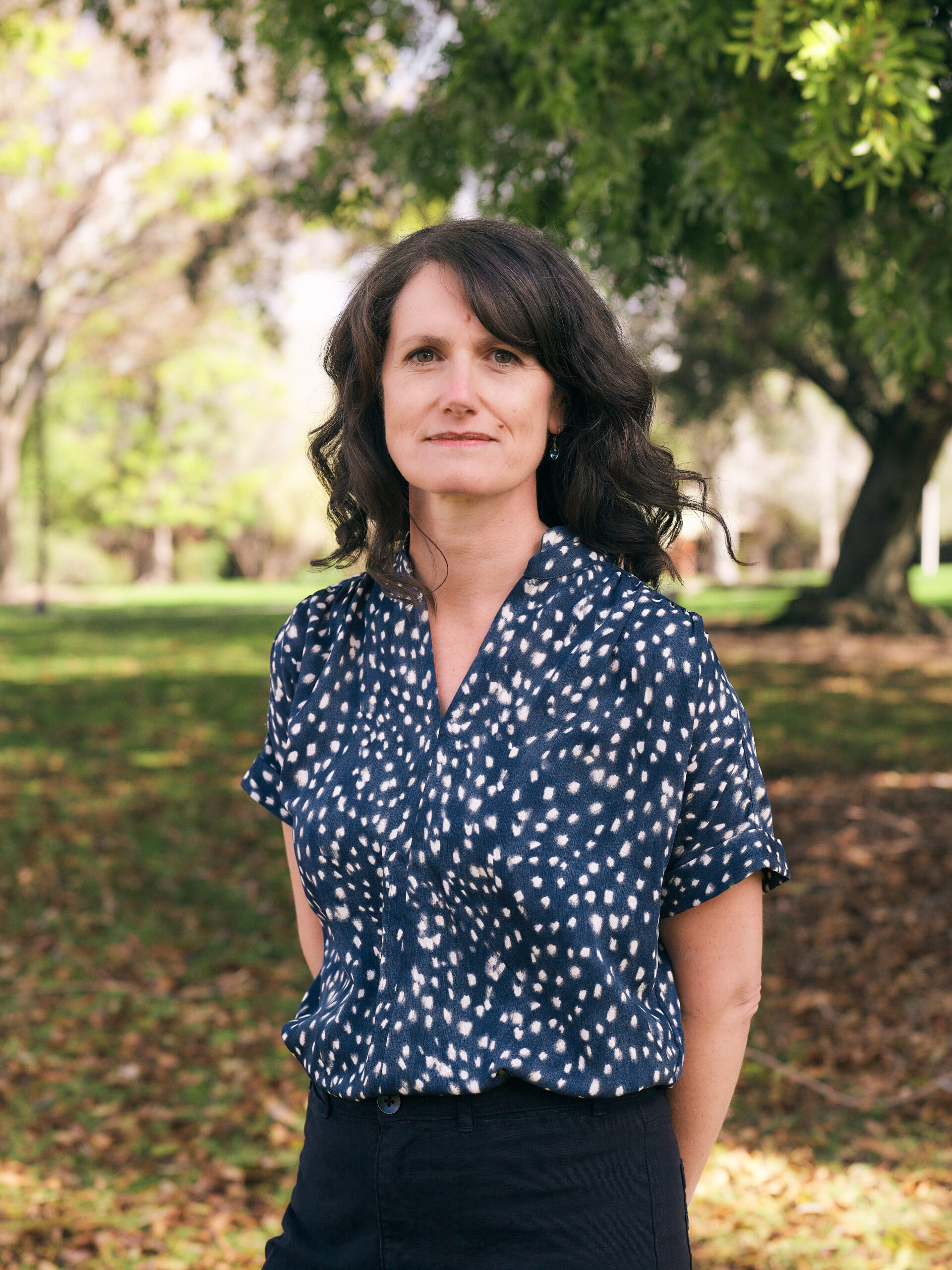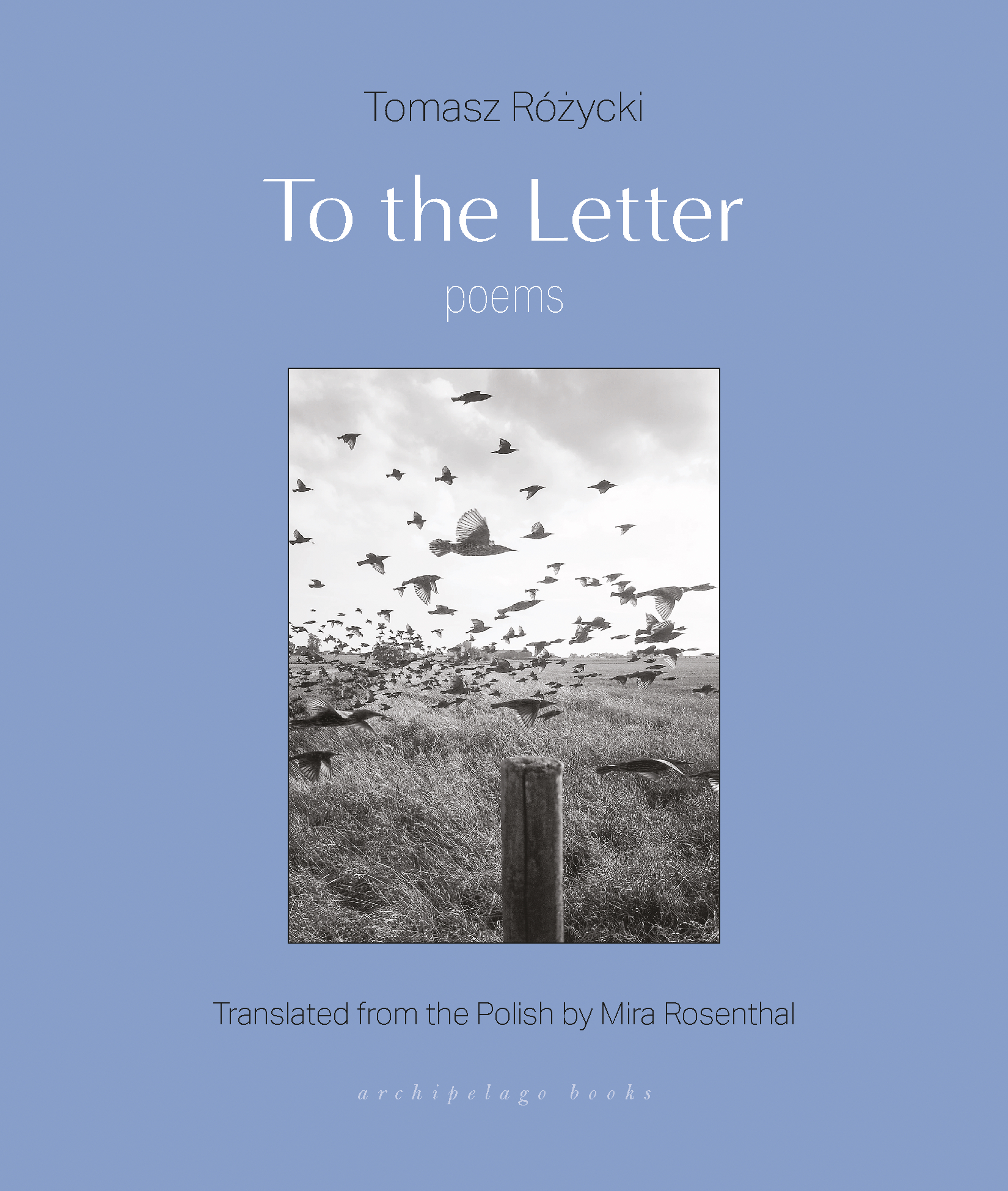I’ve said goodbye to the twentieth century,its porches choked with bindweed, its wild weepingand wild grapevines. When finally the blackpatrol car leaves, then you can hear the pantingof the train, the horses snorting, sweat steamingin icy air. Nervous, you wonder what might be worthtaking for good: a useless notebook, minorsnapshots, cheap religious medals? Forests and citiesalong the way sleep like huge dark churches.I’ll not be coming back here, windows drapedwith dirty towels, signs of widespread plague.Below the sand, I’ve hidden a handful of wordsnot yet infected. For you. I put the rest outsidealong with the still warm body to see how these timeswill take care of it at night. What shape this era will carvein the flesh, what will be left when morning arrives.
This Era
Feature Date
- March 31, 2024
Series
- Translation
Selected By
Share This Poem
Print This Poem
“44. This Era” from TO THE LETTER: by Tomasz Różycki.
Published by Archipelago Books on January 9, 2024.
English Copyright © 2024 by Mira Rosenthal.
All rights reserved.
Reproduced by Poetry Daily with permission.

Tomasz Różycki is the author of over a dozen books of poetry and prose of widespread international acclaim, with work translated into many languages. A recipient of the Wisława Szymborska Prize, the Kościelski Award, the Prix Grand Continent, and a DAAD Artists-in-Berlin Fellowship, he is an “Ambassador of the New Europe” and one of the leading writers of his generation in Poland. He has served on the juries for the Zbigniew Herbert International Literary Award and the Swiss Prix Jan Michalski. In the U.S., he has been featured at the Unterberg Poetry Center, the Princeton Poetry Festival, and the Brooklyn Book Festival. He also teaches and translates French literature.

Mira Rosenthal is the author of Territorial, a Pitt Poetry Series selection, and The Local World, winner of the Wick Poetry Prize. Her translations of contemporary Polish poetry include Krystyna Dąbrowska’s Tideline, which was shortlisted for the Derek Walcott Prize and the National Translation Award, and Tomasz Różycki’s Colonies, which won the Northern California Book Award and was shortlisted for the Griffin Poetry Prize and the Oxford-Weidenfeld Translation Prize. Her other honors include a National Endowment for the Arts Fellowship, a Wallace Stegner Fellowship from Stanford University, and residencies at Hedgebrook, MacDowell and the Jan Michalski Foundation. Rosenthal’s translation of Różycki’s To the Letter is currently long-listed for the 2024 Griffin Poetry Prize.
"“We live in feral times,” the poet says, asking us “what shape this era will carve / in flesh.” In Mira Rosenthal’s exacting, beautiful translations, Tomasz Różycki's work gives us a moment of honest assessment, answering hard questions without patronizing, with lyric precision. One of Poland’s best living poets, he is writing at the height of his powers. Which, for me, means: there is mystery in his work, that feels trustworthy—“we will dig ourselves out of our private muck /of subtext, shed the weight,” he says, “and fly off, empty, for the nearest lightbulb.” It is amongst the quotidian that he seeks to be saved, his is a vision in which despite all the tragedy of this new century, the thrush that sings “at two a.m. outside / our window in the parking lot has saved / the day, the month.” If that is to be our new metaphysics, count me in."
— Ilya Kaminsky
"In this philosophical collection that explores doubt—regarding language, God, and the prospect of repeating history—many poems address an unreachable “you” who could be a lover, a deity, or a ghost of someone long dead. Rosenthal’s translation draws out these poems’ shades of melancholy and whimsy, along with the slant and irregular rhymes that contribute to their uncanny humor. Różycki’s verse teems with sensuous, imaginatively rendered details."
— The New Yorker
Poetry Daily Depends on You
With your support, we make reading the best contemporary poetry a treasured daily experience. Consider a contribution today.




